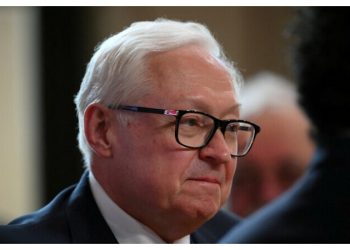ANKARA: Turkey’s central bank raised its key interest rate by an aggressive 7.5 percentage points on Thursday, in a new sign of a return to more traditional economic policies under President Recep Tayyip Erdogan.
The bank hiked its policy rate to 25% as it continues to backtrack from a rate-cutting course set by Erdogan, which has been blamed for inflaming a cost-of-living crisis. Many households have been left struggling to afford rent and basic goods as inflation has surged.
Erdogan has long argued that lowering interest rates helps fight inflation, a theory that runs contrary to traditional economic thinking.
Central banks around the world have been hiking rates to bring consumer price rises under control following the COVID-19 pandemic and Russia’s war in Ukraine. The Turkish central bank, however, started cutting rates in late 2021 under pressure from Erdogan.
The team includes former Merrill Lynch banker Mehmet Simsek, who returned as finance minister, a post he held until 2018, and Hafize Gaye Erkan who took over as central bank governor. The first woman to hold that position, Erkan was previously co-chief executive of the now-failed San Francisco-based First Republic Bank.
Following Erkan’s appointment, the bank raised the key policy rate by 6.5 percentage points, to 15%, in June and then by 2.5 percentage points, to 17.5%, in July.
Before that, the central bank had cut its key interest rate from around 19% in 2021 to 8.5% earlier this year. Erdogan has fired three central bank governors who resisted pressure to cut rates before appointing Erkan’s predecessor in 2021.
































